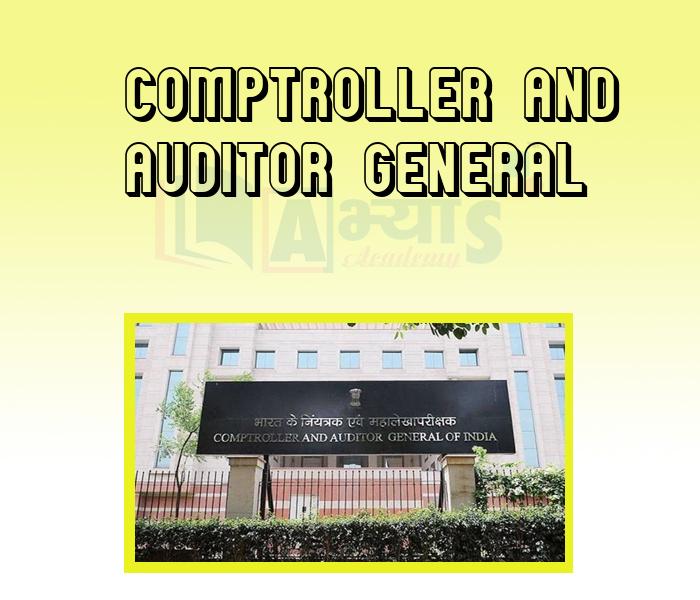Comptroller and Auditor General










Comptroller and Auditor General
Comptroller and Auditor General:
As the most important instrument of accountability, the Comptroller and Auditor General of India has a dual role to perform as an agency to function on behalf of the Legislature to ensure that the executive complies with the various laws passed by the Legislature in letter and spirit, and secondly, on behalf of the Executive to ensure compliance by subordinate authorities with the rules and orders issued by it.
The Comptroller and Auditor General of India, as the head of the Indian Audit and Accounts Department, is thus neither a part of the Legislature nor the Executive but is an officer created by the Constitution to see that diverse authorities act in regard to all financial matters in accordance with the Constitution and the laws and rules framed there under.
Independence of Comptroller and Auditor General:
There are several provisions enshrined in the Constitution to safeguard his independent function. These are:
The Controller and Accountant General of India is a friend and guide of ______________________ | |||
| Right Option : D | |||
| View Explanation | |||
Which one of the following duties is not performed by the Controller and Auditor General of India ? | |||
| Right Option : D | |||
| View Explanation |
Which of the following are correct : (a) The Comptroller and Auditor General's Act, 1971, provide the legal basis for the auditorial functions of the Comptroller and Auditor General of India. (b) Article 148-151 in Part V of Indian Constitution has provisions related to Controller and Auditor General India. | |||
| Right Option : C | |||
| View Explanation | |||
Students / Parents Reviews [10]
A marvelous experience with Abhyas. I am glad to share that my ward has achieved more than enough at the Ambala ABHYAS centre. Years have passed on and more and more he has gained. May the centre flourish and develop day by day by the grace of God.

Archit Segal
7thI have spent a wonderful time in Abhyas academy. It has made my reasoning more apt, English more stronger and Maths an interesting subject for me. It has given me a habbit of self studying

Yatharthi Sharma
10thIt has a great methodology. Students here can get analysis to their test quickly.We can learn easily through PPTs and the testing methods are good. We know that where we have to practice

Barkha Arora
10thIt was good as the experience because as we had come here we had been improved in a such envirnment created here.Extra is taught which is beneficial for future.

Eshan Arora
8thBeing a parent, I saw my daughter improvement in her studies by seeing a good result in all day to day compititive exam TMO, NSO, IEO etc and as well as studies. I have got a fruitful result from my daughter.

Prisha Gupta
8thMy experience was very good with Abhyas academy. I am studying here from 6th class and I am satisfied by its results in my life. I improved a lot here ahead of school syllabus.

Ayan Ghosh
8thMy experience with Abhyas is very good. I have learnt many things here like vedic maths and reasoning also. Teachers here first take our doubts and then there are assignments to verify our weak points.

Shivam Rana
7thOne of the best institutes to develope a child interest in studies.Provides SST and English knowledge also unlike other institutes. Teachers are co operative and friendly online tests andPPT develope practical knowledge also.

Aman Kumar Shrivastava
10thAbhyas is a complete education Institute. Here extreme care is taken by teacher with the help of regular exam. Extra classes also conducted by the institute, if the student is weak.

Om Umang
10thAbhyas Methodology is very good. It is based on according to student and each child manages accordingly to its properly. Methodology has improved the abilities of students to shine them in future.
